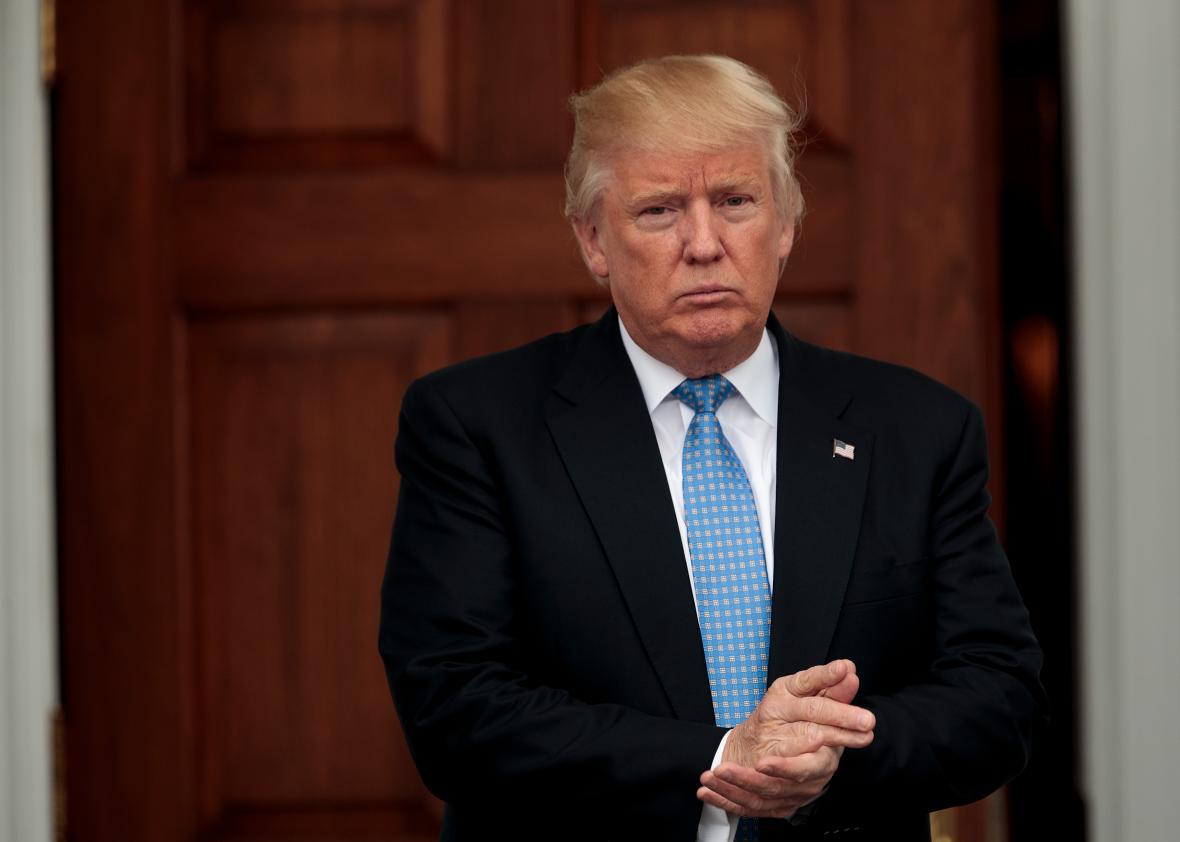On Sunday night, the president-elect of the United States declared that more than 2 million fraudulent votes had been cast in the election that elevated him to the presidency. “I won the popular vote,” Donald Trump tweeted in an angry response to Jill Stein’s swing state recount, “if you deduct the millions of people who voted illegally.” Some pundits once again insisted that this demonstrably false assertion was “just a distraction” to divert our attention from the real crises and scandals. That’s nonsense. One of the key crises facing the United States today is the Republican-led assault on voting rights. And whether or not he intended to, Trump just helped to lay the groundwork for a coming crackdown on suffrage across the country.
Over the past 16 years, Republicans have peddled the myth of widespread voter fraud to justify draconian restrictions on the franchise. Stringent voter ID laws, cuts to early voting, and rigid rules allowing the baseless disqualification of absentee ballots have become commonplace in states like Wisconsin, North Carolina, and Texas, where Republicans have seized total control of the government. So far, however, the GOP’s push to curtail suffrage has floundered on the national level. The George W. Bush administration spent years searching for actual instances of voter fraud as pretext for a national voter ID bill, but failed miserably just in time for Democrats to recapture the Senate in 2006. Since then, Democrats have consistently blocked federal efforts to make voting harder, even as the attack on voting rights became, quite literally, the Republican party line.
Soon these Democratic checks will vanish, and congressional Republicans will surely step up their anti-voting crusade. As the Nation’s Ari Berman notes, Sen. Ted Cruz has already introduced a bill requiring voters to present proof of citizenship, like a passport or birth certificate, before voting in federal elections. This requirement would disproportionately burden poor and minority voters, who tend to vote for Democrats, thereby allowing Republicans to entrench their power. Conservative writers have also spent years developing an intellectual justification for the repeal of federal statutes designed to facilitate voting, arguing that the government should make voting harder to weed out low-information voters. To that end, Republicans are likely to set in their crosshairs the National Voter Registration Act, or Motor Voter Law, which lets citizens register to vote at state agencies like the DMV.
You might notice that this argument—that voters should be required to prove their intelligence before casting a ballot—seems identical to the pretenses deployed by Southern states in the Jim Crow–era to justify literacy tests. It is, of course, and the goal remains the same: to prevent low-income and minority Americans from voting. As one federal court explained in striking down North Carolina’s anti-voting measure, Republicans have “target[ed] African Americans with almost surgical precision” in their efforts to keep minorities away from the polls.
For now, the courts may continue to block these anti-voting laws. But the election of Trump effectively dashed any hopes of robust judicial enforcement of voting rights beyond the next few months. Yes, courts have recently begun protecting the franchise with unusual vigor—but many of these rulings hinged on the fact that the Supreme Court’s conservatives lacked a fifth vote to reverse them. As soon as Trump’s appointee takes the bench, the right-wing justices will begin upholding brazenly discriminatory voting restrictions. (That includes swing-vote Justice Anthony Kennedy, who would have allowed that openly racist North Carolina law to take effect this election season.)
Even worse, the court’s conservatives appear poised to revisit the Voting Rights Act and gut it once again, holding that it merely bars voting laws with discriminatory intent, not laws with discriminatory impact. Because it’s extraordinarily difficult to prove legislative intent, such a decision would render the VRA largely toothless. As Berman reminds us, Chief Justice John Roberts has yearned for this ruling since 1981; soon he’ll have the opportunity to write it himself. And he’ll be working in lockstep with Attorney General Jeff Sessions, who will likely use his immense power to prosecute voter registration groups and launch a witch hunt against phantom fraud while providing legal cover to states that diminish voting rights even further.
The right to vote in the United States is about to enter a period of great peril—and the danger is not limited to one or two elections, before Democrats regain some power and yet again provide a counterweight. If Republicans coordinate this assault shrewdly enough, they can entrench their power indefinitely through voter suppression, remaining a majority party for decades even as their supporters represent a shrinking minority of the country. Trump may not know or care much about this long-term strategizing, but his congressional allies certainly do. And his baseless but explosive tweet can only help them build the pretext for a looming assault on voting rights that is simply without precedent in modern times.
